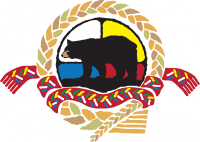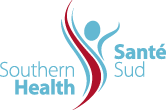Indigenous Health
Southern Health-Santé Sud acknowledges that the land on which it gathers is Treaty 1 and Treaty 3 territory and the homeland of the Métis Nation.
We respect the treaties that were made on these territories and acknowledge the harms and mistakes; we dedicate ourselves to move forward collaboratively in partnership with First Nations, Metis and Inuit peoples in the spirit of reconciliation.

We’re here to help you! (English)
Nous sommes là pour vous aider! (Français)
Nindayaamin ji-wiiji’igooyan (Ojibway)
Ounichiya pta ded unyakun pi (Dakota)
Oota dayanaan chi wiichihitaahk (Michif)Tammaaniitugut ikayoromaluta (Inuktitut)
To lead the way to a healthier future, Southern Health-Santé Sud believes in optimal wellness, balance and connectedness for all people, responding to the holistic needs of Indigenous peoples by building partnerships, trust and by applying an equity lens throughout all facets of our health care services. Embracing diversity and inclusion, we strive to build a cultural capacity which is integrated throughout our programs and services. Together with communities, we are committed to working together towards building a culturally-appropriate and safe health care system for all diverse peoples and Indigenous communities in Southern Health-Santé Sud.
We are here to Listen, Help & Support You
Visiting a health centre can be a very difficult and stressful time – especially if English is not your first language or you are navigating an unfamiliar health care system. The Indigenous Support Worker Program is one part of an overall strategy that was developed to modify the current health care system to better meet the needs of Indigenous peoples living in Southern Health-Santé Sud. It provides peace-of-mind, knowing that your needs are being cared for in a culturally appropriate and culturally safe manner. If you are First Nations, Métis or Inuit, please self-identify at the admitting/reception area so that we can support you in your health journey.
Join Our Team
Southern Health-Santé Sud is committed to increasing the representation of Indigenous peoples within all levels of our workforce. Accordingly, Indigenous applicants are encouraged to join our team where you fill find opportunity within a rich range of health care careers.
Insignia Description

- The Medicine Wheel represents the spiritual, emotional, mental and physical elements of the person.
- The four colors of red, blue, white and yellow around the bear represent the Four Nations of the world.
- The braided sweet grass represents Mother Earth and her holistic healing gifts that she provides.
- The intertwined sash represents the Métis. The different ethnic backgrounds, different languages and how they blend into one another to form a rich tapestry like the lives and cultures of the Métis people.
- The bear represents traditional and contemporary medicines and teachings of the sacred medicines complementing one another.
Frequently Asked Questions
What is cultural safety
Cultural safety is what is felt or experienced by you when a health care provider interacts with you in a respectful, inclusive way, empowering you in decision-making and build relationships with your health provider to ensure maximum effectiveness of care… so you can feel safe. Cultural safety is based on respectful engagement which assists you along your journey to improve your well-being.
What is cultural competency?
Cultural competency is a set of congruent behaviours, attitudes and policies that come together in a system, agency, or among professionals and enables us to work effectively in cross-cultural situations. It is an ongoing process of self-reflection, developing knowledge, attitude and skills to work respectfully and effectively. It is based on recognition and acceptance that cultural differences exist and diversity ‘within’ culture is as important as diversity ‘between’ cultures.
Why are cultural safety and cultural competency important?
Cultural safety and competency reduce health disparities, address inequitable access and positively impact health outcomes of culturally diverse peoples and communities.
Who are Indigenous People?
Canada recognizes three groups of Indigenous people: First Nations, Métis and Inuit
- First Nations refers to the original inhabitants of Canada, both Status and non-Status
- Métis is a person of mixed Aboriginal and European ancestry who are descendants of the early settlers of Canada
- Inuit is a person of Aboriginal descent in northern Canada who generally resides in the Yukon, Northwest Territories, Nunavut, northern Quebec or Labrador
What is the Indigenous Support Worker program?
The Indigenous Support Worker Program is one part of an overall strategy that was developed to modify the current health care system to better meet the needs of Indigenous peoples living in Southern Health-Santé Sud. We currently offer Indigenous Support Worker services primarily in the northern part of the region, based out of the Portage District General Hospital.
What is the role of the Indigenous support worker?
The Indigenous Support Worker creates a welcoming environment and positive experience for you in your health care journey, providing support and cultural resources to Indigenous peoples. Service includes: assistance navigating, information on programs and services or language interpretation so that Indigenous peoples better understand and are able to make informed decisions. Workers also act as a cultural resource to Indigenous peoples’ health providers and help in addressing health issues and concerns by engaging in health care planning as well as participating in case conferences. Indigenous Support Workers collaborate and establish connections with communities, agencies and organizations to better serve the evolving needs of Indigenous peoples. To connect with an Indigenous Support Worker at the Portage District General Hospital, ask your health provider to refer you for services or ask to have them paged.
